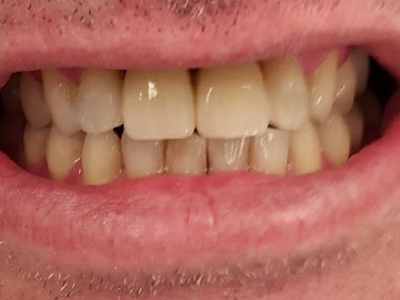A tooth loss can have a negative impact on the ability of you to speak and chew your food properly. It can also affect your self-confidence and confidence. This is why replacing your teeth is important. Crowns, dental implants, as well as dentures, are all possibilities to replace missing teeth.
Implants for dental purposes are well-liked for replacing missing teeth because they feel and look as natural teeth. Implants are a lasting option that doesn`t need extra care beyond regular flossing and brushing. Your dentist will evaluate whether you`re an ideal candidate for dental implants based on a variety of factors such as the condition of your gums and jawbone.
There are a variety of options to replace missing teeth when you don`t qualify for dental implants or you`d prefer a different option. Dentures are removable appliances that are utilized to replace missing teeth or a number of them. Crowns can be used to restore damaged or decayed tooth that require support. Your dentist will determine what is most suitable for you, based on the requirements and preferences of your individual situation. Forest and Ray is a relevant website to get more information.
There are a variety of options for tooth replacement readily available
Teeth play a vital role of our overall appearance and health. Losing one or more teeth can significantly impact not only our ability to eat, but talk but also our self-esteem. There are a variety of options for replacing missing teeth.
Another alternative is false teeth which are removable dentures that can be placed over the gums. They can be used to replace a single tooth or many missing teeth. False teeth are constructed of various substances, like acrylic resin, porcelain, or alloy of metal.

Another option to replace missing teeth is using dental implants. Dental implants are placed by surgically inserting a titanium post inside the jawbone where the tooth was previously be. After the implant has bonded to the bone the tooth that will replace it can be attached.
Bridges are a third option to replace missing teeth. They are comprised of artificial teeth that are anchored to the natural teeth or dental implants. Bridges are constructed using a variety of materials, such as ceramic and porcelain.
Consult your dentist for the best option for your health and needs. Whichever option you select, maintaining your smile is essential to ensure it will last a long time.
Evaluation and consultation procedure
During the evaluation and consultation process your dentist will look at the health of your mouth to find the best option to replace missing teeth. They might recommend dental implants as well as a denture or dental bridges based upon your individual needs. If you are missing one tooth, an implant procedure may be suggested since it is secured by the surrounding teeth and can improve your smile.
A partial denture, or removable partial dentures could be recommended if you`ve got numerous missing teeth. They provide greater flexibility than fixed bridges. Your dentist will discuss all available options with them so that you are able to make an informed decision depending on your specific situation. In certain instances, tooth whitening procedures may also be recommended before proceeding with any option for replacing teeth to ensure that existing teeth match the shade of new restorations.
In the course of preparing for the procedure, you should talk to your dentist about any potential issues or risks, and make sure that you are aware of what to anticipate both before and after the procedure. It is vital to follow all instructions for pre-operative treatment given by your dentist, in order to minimize any risks associated with the procedure. You will receive post-operative instructions to be strictly adhered to in order to speed up healing and ensure your oral health over the future.
Making preparations for the procedure
Consulting with your dentist one of the most important steps you can take to prepare for dental implant procedures. Your dentist will assess the condition of missing teeth in this appointment and suggest alternatives to replace the missing teeth. Dentures, dental implants, and crowns are among the common tooth replacement options that are available.
Before going through any dental procedure, it is vital to make sure that you have good oral health. Gum disease or decay could affect the success of a tooth replacement method. Your dentist may recommend procedures like teeth whitening or gum therapy prior to starting replacing a tooth.
When considering a tooth replacement alternative, it`s important to think about how it could impact adjacent teeth and overall bite alignment. During the consultation the dentist will go over these factors and assist you in choosing an option that likes the natural tooth.
Replace your teeth by this method
Dental implants are one way to replace damaged or missing teeth. This procedure involves inserting an implant made of titanium into the jawbone, which acts as an anchor to the artificial tooth. Dental implants are considered a permanent solution that can be made of materials such porcelain, which matches the teeth around it.
A dental bridge is another alternative for replacing missing teeth. A bridge uses existing teeth either side of the gap to serve as a support for an artificial tooth, or a series of false teeth between the two. Bridges are constructed of a variety of different materials like ceramic and porcelain. However other dental treatments might be needed if there has an increase in bone loss within the region around.
Partial dentures can be utilized to replace missing teeth. They are removable appliances connected to natural teeth with clasps or precision attachments. They can be made from acrylic resin or metal and are a cheaper alternative to the other methods.
Whatever option you decide to go with, it`s essential to speak with your dentist and get an examination performed prior to undergoing any procedure for tooth replacement. Your dentist will evaluate the health of your mouth and recommend alternatives based on factors such as the cost, durability, as well as aesthetics. Aftercare and maintaining teeth be crucial to getting a positive outcome without complications or risks.
Recovery and post-care
Proper aftercare and recovery are crucial for the effectiveness of your tooth replacement procedure. You will receive specific guidelines from your dental office to ensure that you heal in a timely manner and maintain healthy teeth over the long haul.
If you`re missing a tooth or multiple teeth, there are various options to replace these. The removable partial denture is a popular choice to replace missing teeth. It is also used for multiple teeth. Another option is a bridge that involves putting an artificial tooth under the bridge to fill the gap that is left by a missing tooth.
Be aware that missing teeth could affect your other teeth over the long term. Dental decay and gum disease can develop when the surrounding teeth shift into the empty space caused by the missing tooth. If you are looking to replace one or more missing teeth, book an appointment with your dentist practice to discuss options for treatment and the cost of a single implant.
One of the most sought-after treatments for replacing missing teeth are dental implants. In contrast to other alternatives like bridges or dentures, implants look and feel just like natural teeth as they are surgically placed in the jawbone and bonded with it with time. Implants for dental use can last for years with proper maintenance and follow-up care.
Long-term maintenance of tooth replacement
To ensure that your replacement tooth lasts as long as it is possible it is crucial to keep the device in good condition. If you are using a dental bridge, it is important to brush and floss around the bridge daily. The dentist will always advise using a flossing device which can be used to clean the bridge too. Regular visits are crucial in the case of dentures, or bridges that substitute multiple teeth.
If you have chosen dental implant surgery, then long-term care is easy like flossing and brushing regularly. You might be advised by your dentist to use a mouthwash that is antibacterial to keep bacteria from forming. Sometimes, X-rays are used to determine if the bone density near the implant site is insufficient.
A crown fitted onto an implant needs just as much attention as natural teeth – brushing twice a day and flossing at least once per each day will keep their health in the long run. Implants that are properly maintained will last for a long time. So make sure you keep track of all appointments that your dentist suggests in this period of covid pandemic.
Potential risks and complications to be aware
When looking at options for tooth replacement, it is important to know about the potential complications and risks. One common issue with dental implants is the possibility of the implant not integrating properly with the jawbone, which could cause discomfort, or even the need to remove the implant. If a porcelain crown is utilized as part of the procedure to replace it, there is a chance of cracking or chipping in the course of time.
It is essential to recognize that multiple treatments could be required to obtain the best results. This could include orthodontic treatment to ensure the proper alignment of surrounding teeth, or oral and maxillofacial surgeries to prepare an abutment. Patients must also be aware that, while implants are made to complement natural teeth in both shape and color however, they might not seamlessly blend into.
During the initial consultation it`s essential that patients talk about any concerns they might have about possible risks to their dentist. In rare instances there can be more serious issues, such as nerve injury or infection. Also, patients who suffered from mouth cancer or radiation treatment in the past might require extra care during tooth replacement procedures due to changes in the facial muscles and bone structure.
Many feel that replacing their missing teeth gives them their confidence back as well as their smile. The dental team as well as the patient can ensure that tooth replacements remain in place for years with regular maintenance. This provides patients with peace of mind knowing that they`ve managed to regain full function.

